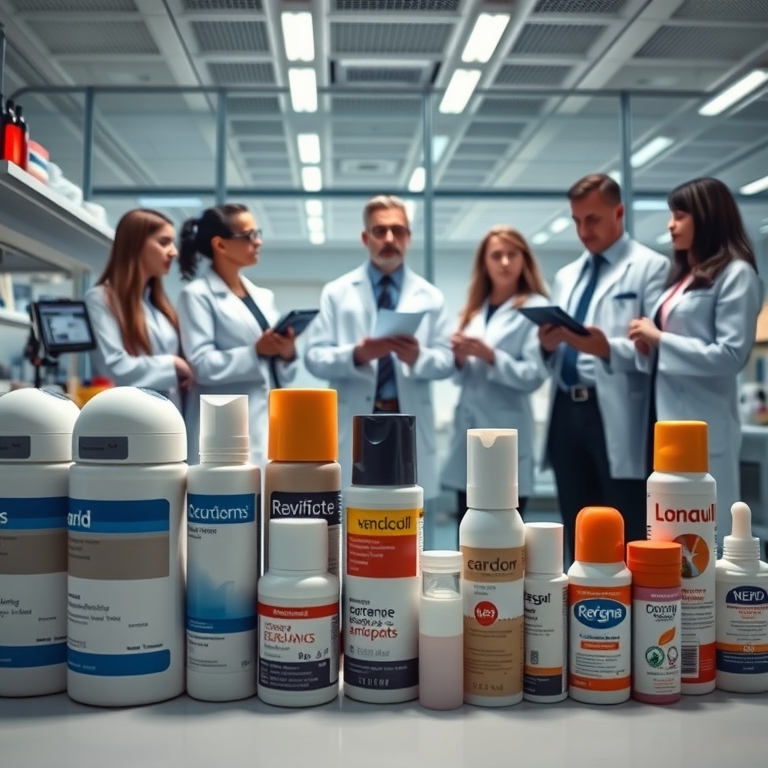In a significant move that has caught the attention of consumers and industry experts alike, the U.S. Food and Drug Administration (FDA) has announced a recall of several popular deodorant brands over concerns about potential health risks. This decision has sent ripples across the personal care and consumer goods sectors, highlighting the intricate balance between product safety, regulatory oversight, and consumer trust.
The recall stems from recent findings that have raised alarms about the presence of potentially harmful substances in these deodorants. The FDA’s investigation, which was prompted by a series of independent studies and consumer reports, detected trace amounts of benzene in certain aerosol deodorant products. Benzene is a volatile organic compound that, when inhaled or absorbed through the skin over prolonged periods, has been linked to an increased risk of developing certain cancers, including leukemia.
The affected products belong to some of the most trusted and widely used brands in the personal care industry, underscoring the breadth and depth of the recall’s impact. These brands, which have long been staples in households across the country, now face the daunting task of addressing both regulatory challenges and public perception issues. The recall has been met with swift action from the companies involved, each of which has pledged full cooperation with the FDA and a commitment to consumer safety.
For the deodorant industry, this recall represents a critical moment of introspection and reevaluation. The personal care sector operates under rigorous safety standards, yet the presence of such a concerning substance in daily-use products highlights potential gaps in quality control and supply chain oversight. Manufacturers are now urged to conduct thorough reviews of their production processes, ingredient sourcing, and testing protocols to ensure compliance with safety standards and to prevent similar incidents in the future.
From a regulatory perspective, the FDA’s actions reinforce the agency’s role as a vigilant guardian of public health. The recall serves as a potent reminder of the importance of robust regulatory frameworks that can swiftly address emerging health risks. It also highlights the need for ongoing research and development in the field of toxicology to understand the long-term effects of chemical exposure from everyday consumer products.
For consumers, the recall has understandably sparked concerns and questions regarding the safety of their personal care routines. Deodorants are an integral part of daily hygiene, and the notion that such essential products could pose health risks creates a sense of vulnerability and unease. In response, the FDA has issued guidelines advising consumers to check their deodorant products against the recall list and discontinue use of any affected items. The agency has also set up a dedicated helpline and online resource center to assist consumers in navigating the situation.
In the wake of the recall, consumer advocacy groups have called for increased transparency in the labeling and marketing of personal care products. These groups argue that clearer labeling would empower consumers to make more informed choices and foster greater accountability within the industry. There is a growing demand for product labels that not only list ingredients but also provide information on potential health impacts, especially for chemical compounds that are not widely understood by the general public.
The financial ramifications of the recall are significant, with potential losses not only in sales but also in brand equity and consumer loyalty. Companies affected by the recall may face a challenging road ahead as they work to regain consumer trust. This will likely involve not only addressing the immediate safety concerns but also investing in long-term brand rehabilitation strategies. Marketing campaigns emphasizing transparency, safety, and consumer well-being may become pivotal in reshaping brand narratives.
However, the recall also presents an opportunity for innovation within the industry. As companies strive to eliminate potentially harmful substances from their products, there is likely to be a surge in demand for safer, more sustainable alternatives. This could drive advancements in the formulation of personal care products, with an increased focus on natural and organic ingredients. Brands that can successfully pivot towards these emerging consumer preferences may find themselves at the forefront of a new era in personal care.
In conclusion, the FDA’s recall of popular deodorants due to health risk concerns signifies a pivotal moment for the personal care industry, regulators, and consumers alike. It underscores the critical importance of safety and transparency in consumer products while highlighting the need for ongoing vigilance and innovation. As the industry navigates this challenging landscape, the lessons learned from this recall could pave the way for a safer and more conscientious approach to personal care, ultimately benefiting consumers and businesses alike.

Leave a Reply